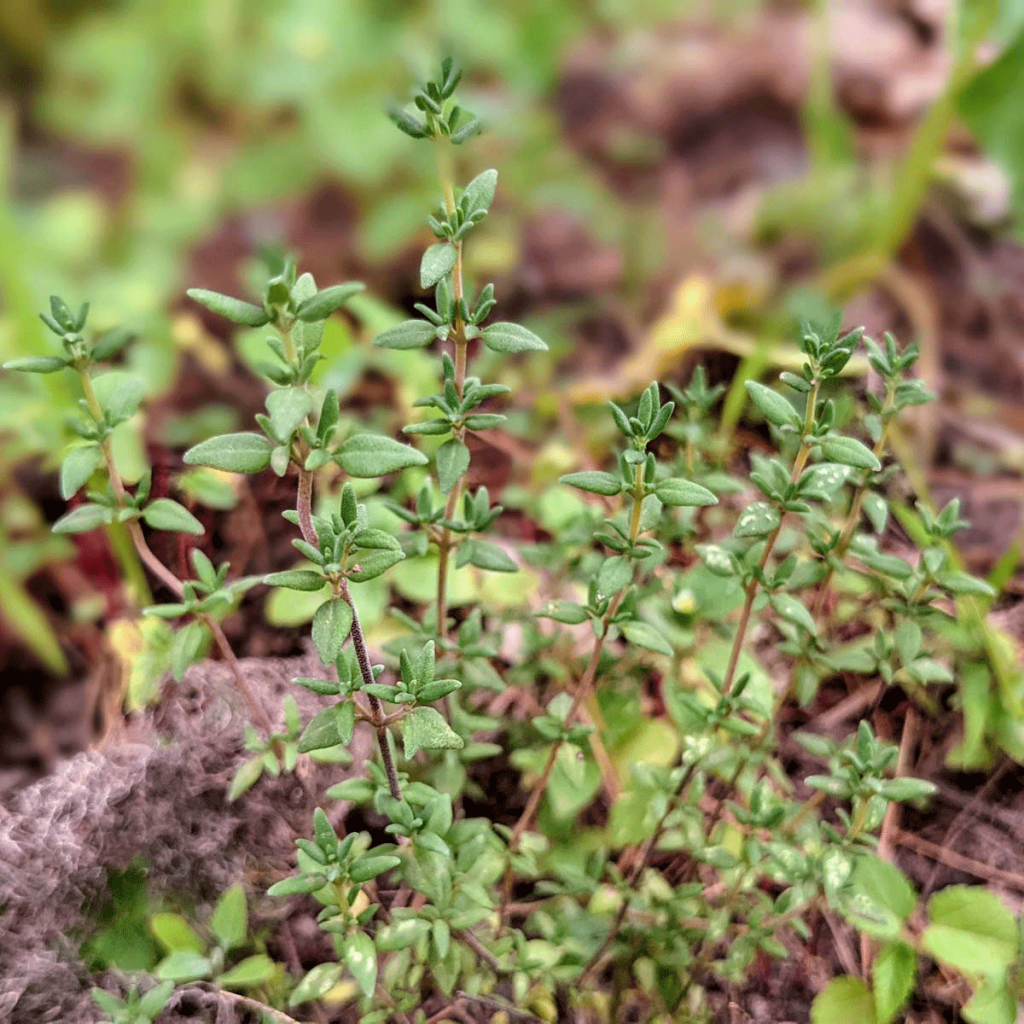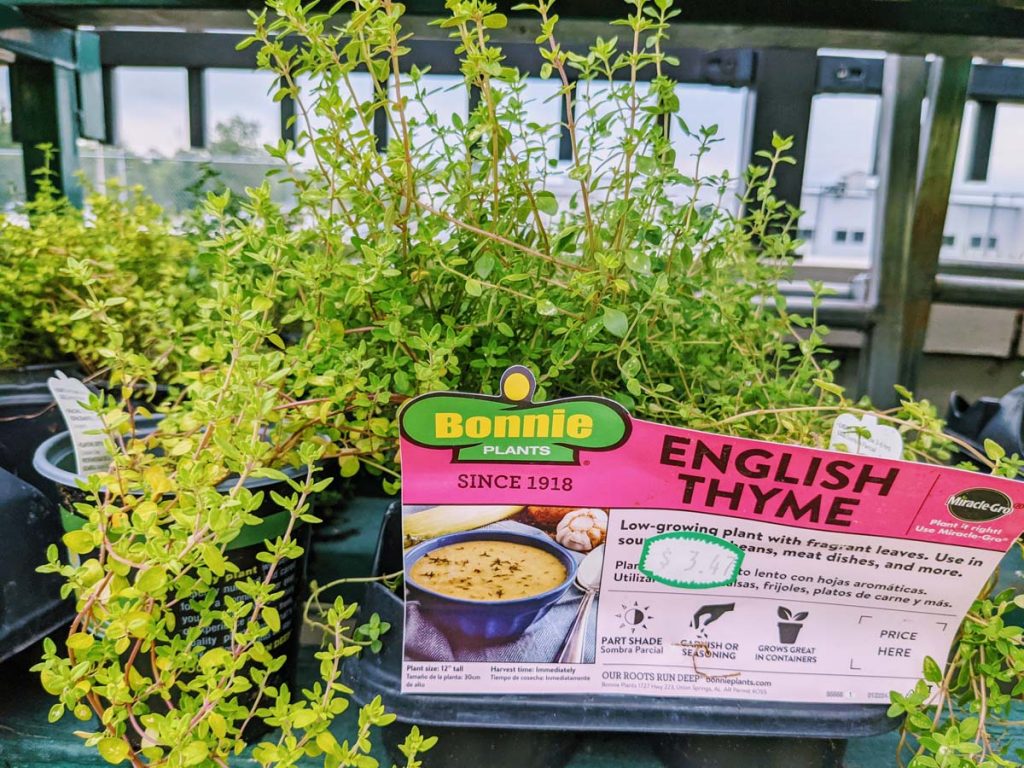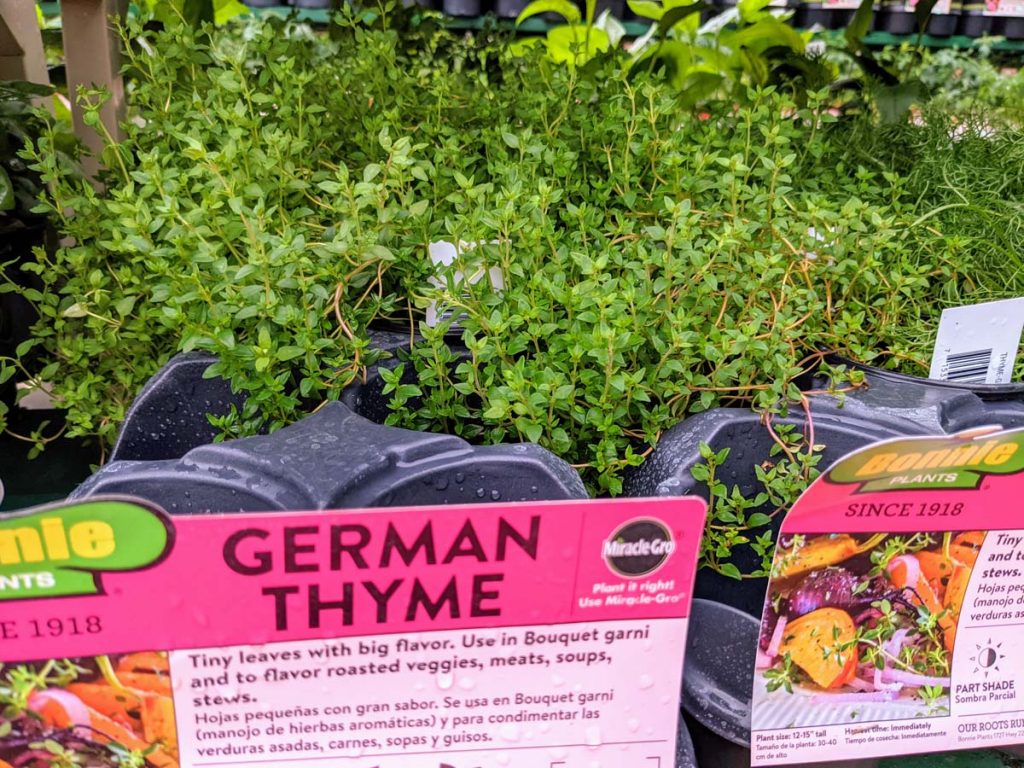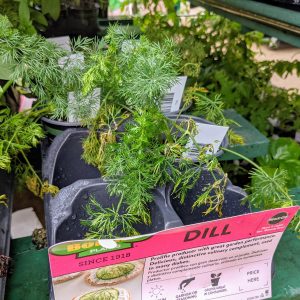Thyme Substitute | 9 Tasty Substitutes for Thyme
If you’ve run out of thyme and also time, we’ve got you covered. Avoid an unexpected trip to the grocery store and check out these helpful and tasty thyme substitute suggestions to save dinner!
As part of the mint family, thyme is a popular Mediterranean herb. Thyme is easy to grow as a perennial and asks little of you. This herb offers benefits to the palate and beyond, both fresh and dried.
But what about when you just find out you’ve run out of thyme?!
Often, we notice we’ve run out of an ingredient, such as an herb or seasoning, right around the time we’ve already started prepping a meal. Guests may even be on the way over. With no time to spare, you can find thyme alternatives to try instead.
Don’t interrupt your flow and rush off to the store! Instead, try one of these thyme substitutes.
But first, let’s learn a little more about thyme.

What Is Thyme Good for in Cooking?
Thyme is delicious when used in seafood dishes, soups, sauces, marinades, braises, and meat or poultry recipes. Similarly, thyme is good for various side dishes such as rice, vegetables, and potatoes, as well as bread and other foods.
Notably useful in savory foods, this popular herb layers on some flavoring without stealing the show. Thyme holds its own even during long cooking times, so keep this in mind when planning your meals.
What Does Thyme Taste Like?
Thyme tastes like an earthy herb with hints of floral, wood, and grass, as well as mint. Some describe thyme as peppery, yet the flavor is more on the mild side. Thyme blends nicely with other herbs, making it a wonderful choice for a variety of dishes.
What Does Thyme Smell Like?
Enjoy the aroma of thyme. Thyme smells like a slightly spicy and woody herbal plant. The fragrance is reminiscent of your favorite roast in the oven or a hint of oregano like you would expect on a pizza pie.
At least this is what thyme smells like to me. What does thyme smell like to you?
What Is a Good Thyme Substitute?
Flavors of thyme blend more than standing alone, so keep this in mind when choosing a thyme substitute.
Also keep in mind that different dishes may work better with a certain substitute for thyme rather than the other possibilities. Choose the best flavor based on what you’re planning to make.

1. Oregano
Since thyme already smells a bit similar to me, oregano is the first thyme replacement I would try. I caught a whiff of thyme that reminded me of pizza with oregano on top, so I’d be sure to use oregano with any Italian dishes.
You can find ideas for Oregano Substitutes on our site as well!
2. Savory
Boasting a thyme-like flavor, savory is a popular substitute for thyme. When looking for savory, you’ll likely find winter savory, which is earthy and understated, and summer savory, which is peppery and more pronounced.
Savory works especially well for seasoning meat. It also holds up well for longer durations in cooking, making it a great replacement for thyme in a lot of different recipes.
3. Marjoram
Sometimes confused with oregano for its similar looks, marjoram offers a hint of pine and citrus in its flavor. This herb is more understated with floral and woody notes, while oregano carries a bolder and more aromatic fragrance.
Marjoram works well as a flavor to add to meat, vegetables, salad dressing, and Italian food.
4. Herbes de Provence
A less obvious shoo-in as a thyme alternative, Herbes de Provence brings together a lot of flavors that would lend themselves nicely to many recipes. Traditionally, the herbal mixture Herbes de Provence generally comprises thyme, basil, oregano, marjoram, rosemary, tarragon, and bay leaf. Sometimes Herbes de Provence also contains lavender.
While it wouldn’t be advisable to choose rosemary as a direct substitute for thyme, the Herbes de Provence seasoning blend would have a diverse enough profile to maintain a layered flavor.
5. Italian Seasoning
Similar to Herbes de Provence, Italian seasoning brings together an all-star cast of seasonings for your substitution pleasure. Most of the time you can expect to find notes of basil, oregano, rosemary, and thyme. In some varieties, you may also find sage, cilantro, or garlic powder.
With the presence of thyme in Italian seasoning, this can be a suitable replacement for thyme in numerous recipes.
6. Poultry Seasoning
For the record, poultry seasoning is another clever thyme substitute. The poultry seasoning blend often contains thyme and dried sage, plus a few supporting seasonings such as black pepper, marjoram, nutmeg, and rosemary. Again, since thyme is included here, you can swap this into your recipe as a thyme replacement.
7. Basil
With an unmistakable aroma, basil offers a lot to the culinary scene. Keep in mind that a small amount of fresh or dried basil may help in a pinch as a thyme substitute.
Also bear in mind that basil does not withstand long cooking times and temperatures as thyme does. And basil also packs a lot of flavor, so a little fresh basil goes a long way. (When substituting basil for thyme, use 50% less fresh basil.)
8. Za’atar
Hailing from the marjoram and oregano family, za’atar as an herb mixture brings a tangy, nutty, or truly herbal flavor to your meals. Also known as Thymbra spicata, za’atar may also have a slight hint of mint in its flavor profile.
Popular in Middle Eastern cuisine, Za’atar is a spice that works well as a dry rub for meats. This seasoning also helps to flavor vegetables, side dishes, and appetizers, especially spreads and dips.

9. Fresh Thyme to Dried Ratio
Finding substitutes for thyme should be easier now that you have some great options to consider.
Of course, if you have it, you can always substitute dried thyme for fresh in a pinch. The flavor is intact and it’s a natural fit no matter what the recipe.
On the flip side, you can also substitute fresh thyme for dried thyme in a recipe. When flipping between fresh thyme vs. dried, keep in mind that you can always add more but you can’t take it out of a recipe.
Many different fresh vs. dry herb ratios are posted online, ranging from using dried herbs in 1/3 to 1/2 the amount called for in the recipe when substituting for fresh.
Likewise, you may increase the amount of fresh herbs to 1.5 times the amount of dry herbs called for in the recipe.
If this sounds confusing, you are not alone. Just remember that dried herbs boast a higher concentration of flavor, making them more potent in your recipes. Less (dried) is more (fresh)!
Things to Consider When Choosing a Thyme Substitute
Every recipe is different. It pays off to think about the entire flavor of the meal as well as each of the layers. Consider these points to help you decide on a substitute for thyme.
- What is the food – meat, vegetable, etc.?
- What other flavors come into play?
- Will the meal cook for a long or a short time?
- Can you taste it during the cooking process? This could help!

Final Thoughts: Substitutes for Thyme
Finding substitutes for thyme isn’t all that hard after all. Now you have a bunch of different options to consider so the flavor profile fits the dish.
Still, it’s always nice to have some extra herbs available in a pinch. Growing thyme for use at home in the kitchen is a rewarding way to achieve this. You can even freeze thyme to use it all year long!
We are growing thyme in our garden and it comes back every year. It’s a lovely little plant and I’m sure it will get bigger and more robust in the years to come.
By the way, if you liked this post, you might also enjoy our post on Parsley Substitute Ideas and more info on Making Herb Substitutes the Easy Way.
Do you cook with thyme often? What’s your favorite thyme substitute?
Let’s chat all about it in the comments below!






